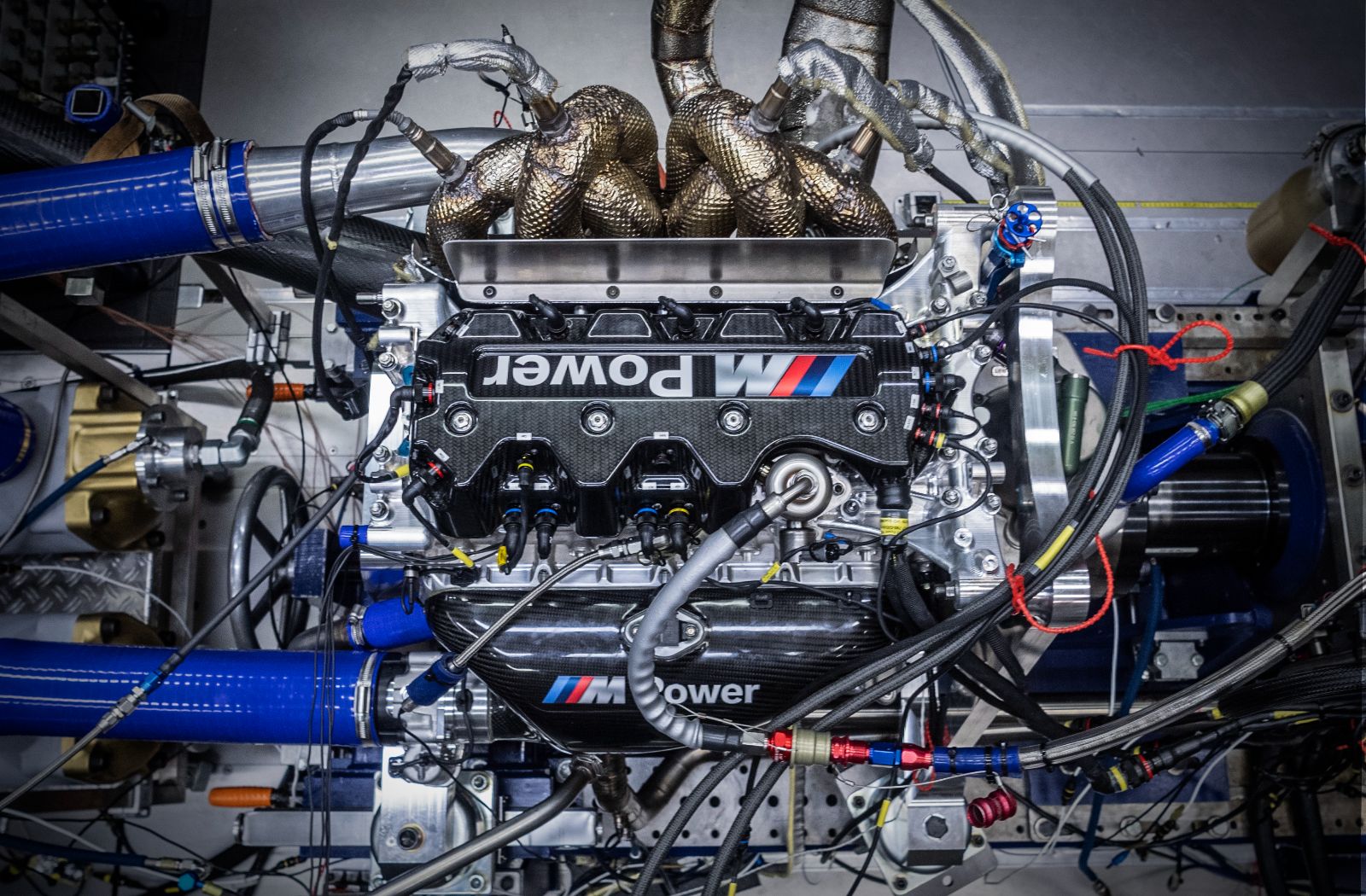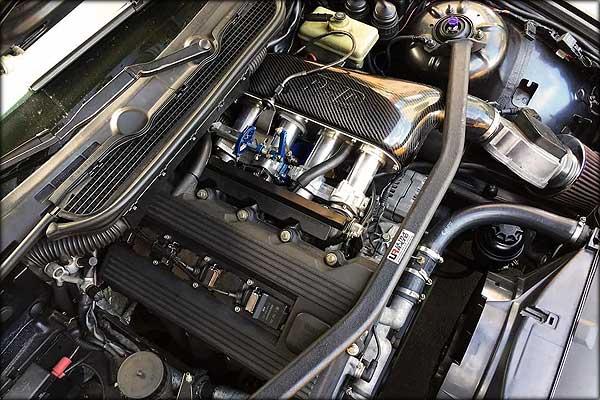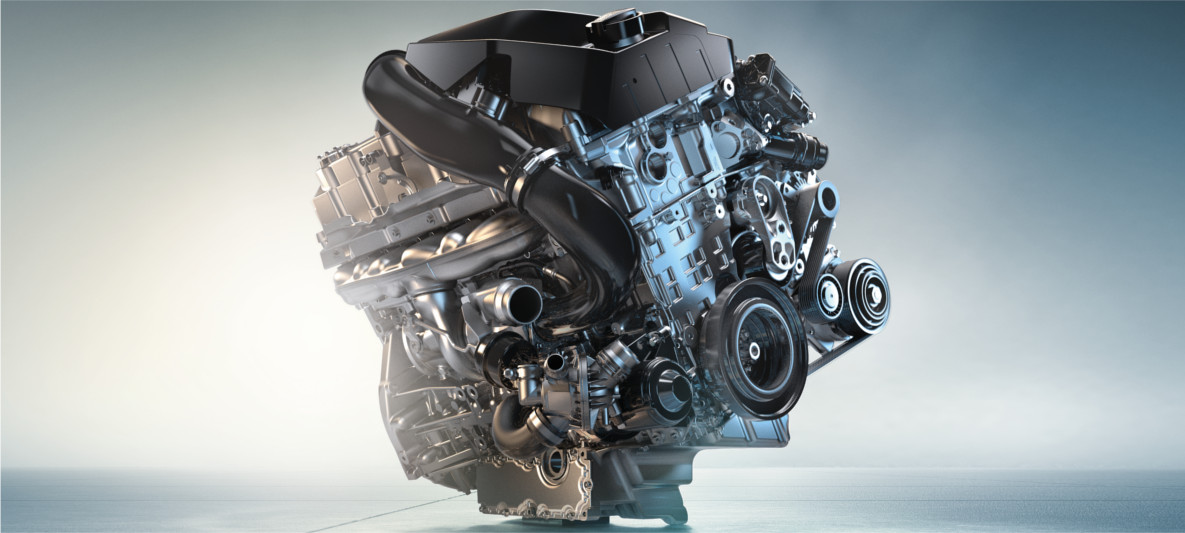The Evolution of the BMW Engine: A Look Back at Iconic Models
The Evolution of the BMW Engine: A Look Back at Iconic Models
Blog Article
Introducing the Intricacies of Next-Generation Power Units: a Deep Dive Into Advanced Engine Styles and Innovations
In the realm of vehicle engineering, the unrelenting pursuit of efficiency, performance, and sustainability has moved the advancement of power systems to unmatched heights. As we base on the precipice of a brand-new period in transport, the ins and outs of next-generation engine styles beckon us to discover the cutting-edge technologies and innovations that assure to redefine the driving experience. From innovative materials that push the limits of longevity and weight decrease to advanced turbocharging and supercharging systems that boost power result to new degrees, each element of these power units holds a vital to unlocking the future of vehicle design. Delving much deeper into the worlds of exhaust control, smart engine administration systems, and the horizon of power system development, we discover ourselves on the cusp of a makeover that assures to reshape the landscape of movement as we understand it.
Advancement of Engine Products

The change in the direction of advanced engine products has actually additionally enabled engineers to create engines with greater power results while maintaining fuel efficiency criteria. The use of lightweight products reduces the overall weight of the engine, leading to improved fuel economy and reduced discharges. Additionally, innovations in products technology have permitted much better thermal monitoring within engines, resulting in increased dependability and durability.
Turbocharging and Supercharging Technologies
Just How do Turbocharging and Supercharging Technologies change engine efficiency and effectiveness in contemporary vehicles? Turbocharging and supercharging are modern technologies that considerably enhance engine performance by raising the quantity of air consumption into the combustion chamber. Turbocharging attains this by using a turbine driven by exhaust gases to pressurize the consumption air, while supercharging uses a belt- or chain-driven compressor to attain the same impact.
These innovations allow smaller sized, a lot more fuel-efficient engines to create power equal to larger ones, recognized as downsizing. By requiring even more air into the cyndrical tubes, turbocharging and supercharging enhance burning efficiency, resulting in boosted horse power and torque outcome without a substantial increase in engine dimension. This leads to far better acceleration, pulling capability, and total driving efficiency.
Additionally, turbocharging and supercharging contribute to boosted gas performance by allowing the use of smaller sized engines that eat less fuel under normal driving problems - bmw engine. This mix of enhanced performance and effectiveness has actually made turbocharging and supercharging indispensable components of lots of modern-day engine designs
Emission Control and Environmental Impact
With raising global issues pertaining to air top quality and environmental sustainability, the implementation of exhaust control technologies in automobiles plays an essential function in lowering harmful toxins launched right into the atmosphere. Modern vehicles are geared up with advanced discharge control systems that help minimize the environmental impact of automobile operations. Catalytic converters, for example, are made to convert toxic gases such as carbon monoxide, nitrogen oxides, and hydrocarbons right into less damaging materials like co2 and water Continued vapor.
Moreover, improvements in engine modern technology, such as the assimilation of exhaust gas recirculation systems and careful catalytic decrease, have dramatically added to decreasing discharges. These technologies work in tandem to optimize burning performance and lessen the release of unsafe toxins right into the air. Furthermore, the development of hybrid and electrical vehicles represents an essential step in the direction of minimizing the general environmental footprint of the transportation sector.
Intelligent Engine Monitoring Systems

Furthermore, these systems make it possible for cars to fulfill rigid emissions criteria without endangering performance, giving a much more environmentally pleasant driving experience. The assimilation of expert system and artificial intelligence abilities in engine management systems continues to press the boundaries of what is feasible, resulting in additional renovations in efficiency, dependability, and general lorry performance. bmw engine. As auto technology developments, smart engine management systems will play a crucial function in forming the future of transport towards a much more sustainable and effective direction
Future Trends in Power System Growth
As smart engine administration systems lead the way for enhanced control and optimization in modern vehicles, future fads in power device growth are poised to redefine the landscape of go to my site automobile propulsion innovations. These alternate power sources offer boosted performance and performance while straightening with rigorous environmental policies.
Another significant fad is the combination of sophisticated materials and making strategies. Light-weight materials such as carbon fiber and aluminum are being made use of to lower general car weight, enhancing gas effectiveness and performance. In addition, innovations in 3D printing and additive production are making it possible for the manufacturing of complicated engine components with greater precision and sturdiness.
Additionally, expert system and device knowing are playing an essential function in maximizing power device performance. These modern technologies permit real-time tracking and adaptive control, causing much more reliable and trustworthy power delivery. On the whole, future trends in power device development are geared towards performance, sustainability, and performance, driving the auto market towards a brand-new era of propulsion innovations.

Final Thought
In conclusion, the improvements in engine products, turbocharging, discharge control, and smart administration systems have actually led the way for next-generation power devices. These developments have not just improved efficiency and efficiency however additionally decreased environmental influence. As technology remains to evolve, future patterns in power device development are likely to focus on additional enhancing sustainability and enhancing power result. The elaborate styles and developments in modern-day engines showcase the continuous advancement of automotive innovation.
Discovering the progressive developments in engine materials has been essential in boosting the efficiency and effectiveness of modern-day engines. Over the years, the advancement of engine products has actually played a vital function in pressing the borders of what engines can achieve.The change in the direction of progressed engine materials has additionally enabled engineers to develop engines with higher power outputs while maintaining fuel performance criteria.The execution of smart engine monitoring systems in modern-day automobiles has actually changed the way engines are controlled and optimized for performance and efficiency. By accumulating information in real-time and assessing it with innovative algorithms, intelligent engine management systems can adjust to driving designs, ecological aspects, and engine health and wellness to optimize power outcome while lessening gas consumption like it and emissions.
Report this page